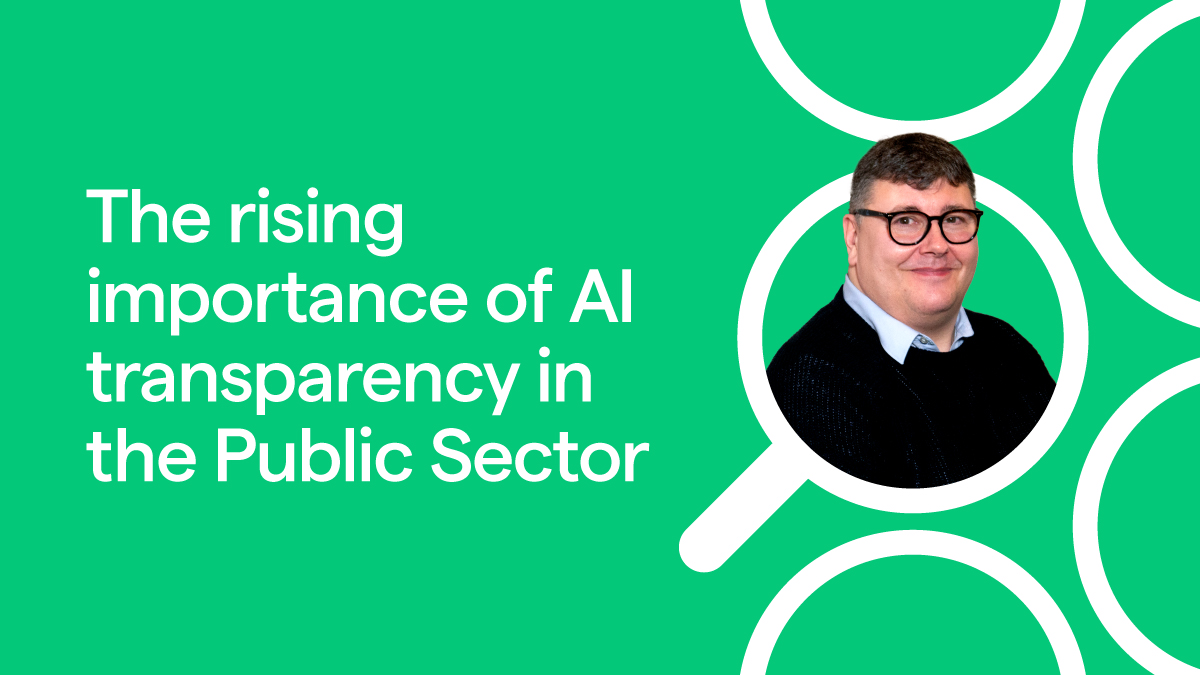The rising importance of AI transparency in the Public Sector
8 min read Written by: Ty Davies
I recently attended a Centre for Digital Public Services (CDPS) presentation on AI transparency and trust in the public sector. The session delved into crucial discussions around AI’s impact on our lives, businesses, and community deliverables.
The presentation underscored the importance of managing data and building trust to ensure fair and rational outcomes with AI technologies. Chaired by Jack Rigby, Head of Technology at CDPS, and presented by Felicity Burch, Executive Director at the Responsible Technology Adoption Unit, and Liz Adams, Head of Algorithmic Transparency at CDEI, the session aimed to initiate discussions on algorithmic transparency reporting within the Welsh ecosystem. This initiative seeks to establish a standard that promotes trust and transparency when utilising algorithmic tools in the public sector, aligning with UK-wide guidance and facilitating discussions within organisations interested in adopting such tools.
The guidance presented during the webinar was developed specifically for use in the public sector and tailored to meet the needs of UK organisations. It was established by the technology adoption unit and the Cabinet Office Central Data and Digital Office, making it a recognised cross-governmental standard. Aligned with commitments made in the National Data Strategy and the National AI Strategy, this standard reflects a collective effort to ensure responsible development of algorithmic tools, thereby building public trust. While it may not be mandatory for Wales, efforts are underway to support its adoption in the region, including translating the standard into Welsh and emphasising its relevance to Welsh stakeholders.
The growing interest in AI reflects its transformative potential across various sectors, from healthcare to public services. Since the launch of ChatGPT in late 2023, there has been unprecedented public and media interest in large language models and generative AI. What were once niche topics have now become central to public discourse. As the public becomes increasingly aware of data-driven tools and their impact on service delivery, there is a growing demand for transparency and accountability in their usage.
While AI and algorithmic tools offer significant potential to enhance public services’ efficiency and effectiveness, their successful implementation hinges on credibility and legitimacy. The recent Post Office Horizon scandal underscores the importance of governance in technological tool usage, highlighting the need for responsible innovation from the outset. Transparency, accountability, fairness, and inclusivity are vital principles guiding responsible innovation, with transparency playing a pivotal role in addressing algorithmic bias and meeting public expectations.
Research indicates a strong public demand for greater algorithmic transparency, with people wanting to understand how their data is used, and decisions are made. Transparency enhances trust and encourages data sharing, benefiting both organisations and the public. However, achieving transparency has its challenges. The complexity of algorithmic processes often makes it difficult for the public to comprehend detailed information. Therefore, the algorithmic transparency recording standard addresses this challenge by breaking information into easily understandable tiers, ensuring accessibility for all stakeholders.
Developed in collaboration with the general public, this standard has been recognised by organisations such as the OECD’s Observatory of Public Sector Innovation, showcasing its global leadership in algorithm governance. While not mandatory for Wales, adopting this standard presents an opportunity for the region to lead in algorithmic transparency, aligning with international best practices.
In conclusion, the algorithmic transparency recording standard is foundational for promoting transparency and trust in AI use in the public sector. By adhering to this standard, organisations can ensure accountability, grow public confidence, and drive responsible innovation in data-driven technologies.
Those interested in AI should follow the CDPS activity to stay informed about developments in this field. As AI becomes increasingly integrated into our lives, it is crucial for individuals responsible for organisational IT to understand both its potential benefits and pitfalls. Transparency should remain at the forefront of all actions, with avenues for public scrutiny and challenge when necessary.




